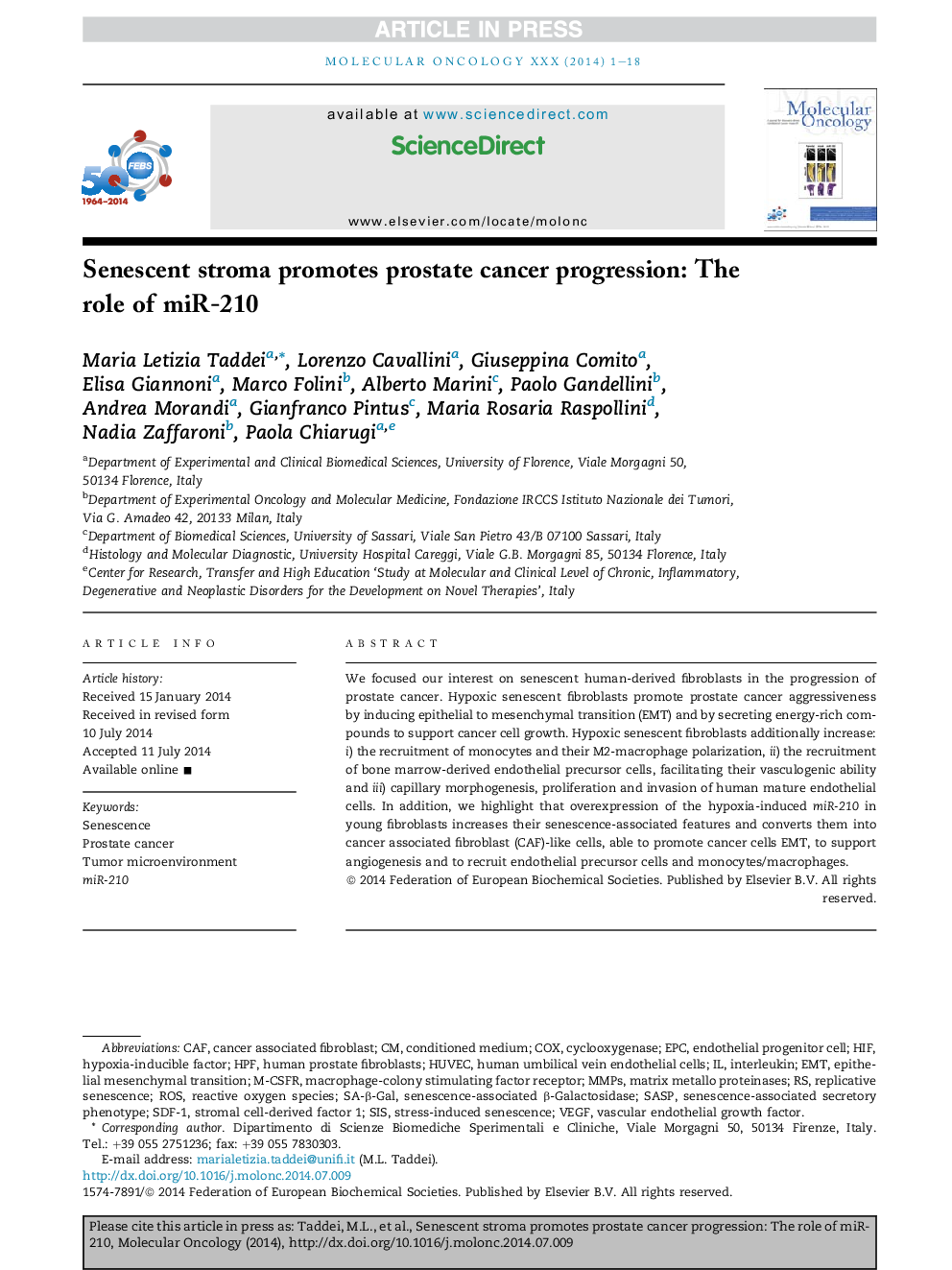| Article ID | Journal | Published Year | Pages | File Type |
|---|---|---|---|---|
| 10914885 | Molecular Oncology | 2014 | 18 Pages |
Abstract
We focused our interest on senescent human-derived fibroblasts in the progression of prostate cancer. Hypoxic senescent fibroblasts promote prostate cancer aggressiveness by inducing epithelial to mesenchymal transition (EMT) and by secreting energy-rich compounds to support cancer cell growth. Hypoxic senescent fibroblasts additionally increase: i) the recruitment of monocytes and their M2-macrophage polarization, ii) the recruitment of bone marrow-derived endothelial precursor cells, facilitating their vasculogenic ability and iii) capillary morphogenesis, proliferation and invasion of human mature endothelial cells. In addition, we highlight that overexpression of the hypoxia-induced miR-210 in young fibroblasts increases their senescence-associated features and converts them into cancer associated fibroblast (CAF)-like cells, able to promote cancer cells EMT, to support angiogenesis and to recruit endothelial precursor cells and monocytes/macrophages.
Keywords
M-CSFRCAFSASPSA-β-galCOXHIFhpfMmpsSISEPCHUVECSDF-1ROSsenescence-associated β-galactosidasecyclooxygenaseepithelial mesenchymal transitioninterleukinmiR-210EMTProstate cancerHuman umbilical vein endothelial cellsEndothelial progenitor cellConditioned mediumstromal cell-derived factor 1Hypoxia-inducible factorVascular endothelial growth factorVascular Endothelial Growth Factor (VEGF)Senescence-associated secretory phenotypecancer associated fibroblastTumor microenvironmentSenescenceReplicative senescenceReactive oxygen species
Related Topics
Life Sciences
Biochemistry, Genetics and Molecular Biology
Cancer Research
Authors
Maria Letizia Taddei, Lorenzo Cavallini, Giuseppina Comito, Elisa Giannoni, Marco Folini, Alberto Marini, Paolo Gandellini, Andrea Morandi, Gianfranco Pintus, Maria Rosaria Raspollini, Nadia Zaffaroni, Paola Chiarugi,
